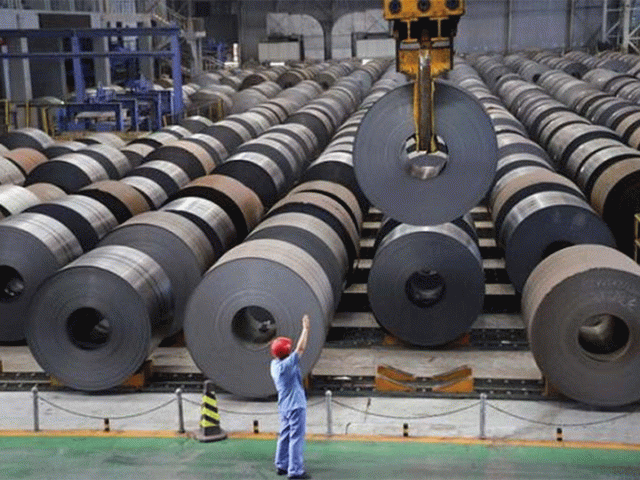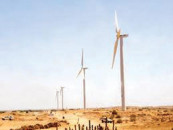Pakistan's steel sector opposes reduction in tariffs
Manufacturers say decision will lead to closure of local industry

PHOTO:REUTERS
“If any duties on long steel products including steel billets, bars, wire rod and structures are reduced, our members will be forced to close factories, resulting in mass unemployment, reduction in revenue generation and a sharp decline in domestic steel supply to the construction industry,” remarked Pakistan Association of Large Steel Producers (PALSP) Secretary General Syed Wajid Bukhari.
There are over 200 units engaged in primary steel manufacturing with combined capacity of over four million tons. The sector generates approximately Rs100 billion in government revenue, provides direct employment for over 55,000 people and is the sole supplier of steel to the construction industry.
“Without long steel products, steel bars and section, not even one square foot of construction can take place,” said the secretary general.
“Pakistan has demand for rebar steel, called Sarya, of around 4.5 million tons per year,” said JS Research analyst Arsalan Ahmed. “The supply surpasses demand at about 5.5 million tons annually, however, exact idea of supply in the country is difficult as the sector is extremely fragmented.”
Many players expanded their production capacity last year, according to Ahmed. Amreli Steel, less than a year ago, expanded its capacity to around 500,000 tons annually. Similarly, Al-Haj Faw set up a steel plant in Khyber-Pakhtunkhwa recently.
The local industry imports scrap, then makes billets, which are subsequently used for re-bars that are used in construction of different projects which gives employment to a large number of people in the country.
“At a time when the cost of doing business has been skyrocketing and steel industry margins are negative, reducing import tariffs on intermediate or finished products is a clear sign from the government that they want to de-industrialise the domestic steel sector,” said Bukhari.
Published in The Express Tribune, April 28th, 2020.
Like Business on Facebook, follow @TribuneBiz on Twitter to stay informed and join in the conversation.


















COMMENTS
Comments are moderated and generally will be posted if they are on-topic and not abusive.
For more information, please see our Comments FAQ